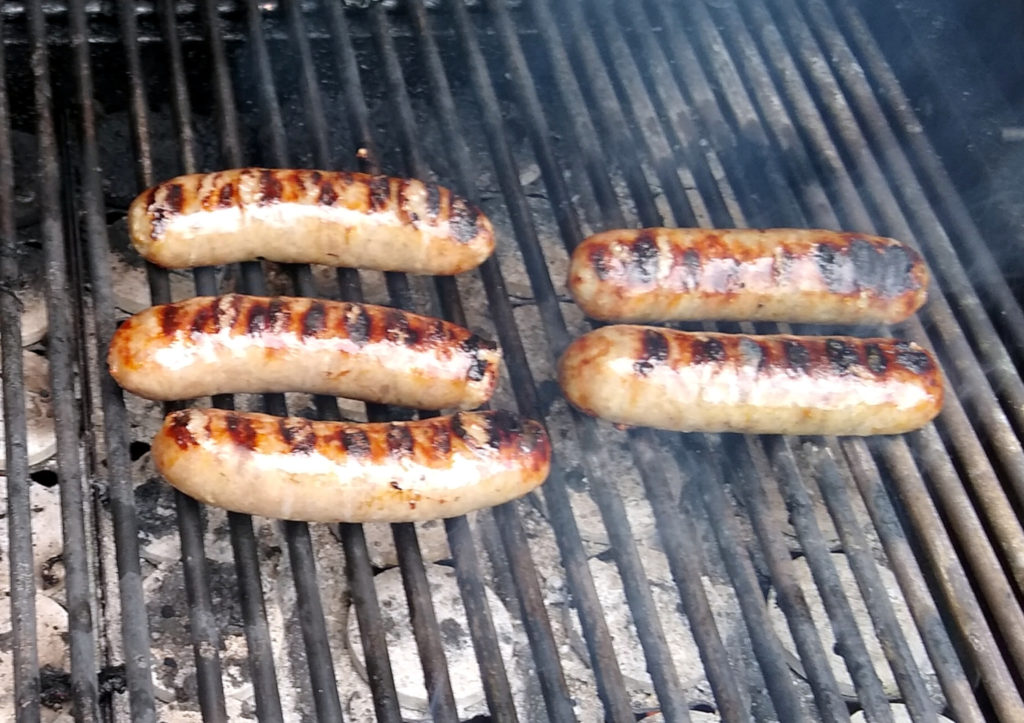One way to describe my effort to lose weight is that I am paying attention. During the years that I was gaining weight, I never paid any attention at all to how much I was eating, only if I was full. If the point of eating is to be full, then paying attention to what you are eating and how much you are eating don’t matter.
Once you have made the mental transformation into someone who is capable of losing weight and controlling their body’s weight, you learn the importance of paying attention to what and how much you eat.

My food intake and calorie count
Breakfast – skipped (not hungry)
- 0 calories
Lunch – 2 x bratwurst (280); half wrap (50)
- 610 calories
Dinner – noodles (300); blueberries (40)
- 340 calories
Snacking – tea with half and half (80); chicken and hummus wraps (150); chips (160); granola bar (200) pretzels and hummus (200)
- 790 calories
Total for the day: 1740 calories (limit 1800 + 500 bonus from swimming, total 2300)
You can't make up for the past, learn and go on
Very few people can become thin (lose 120 pounds) through exercise. However, many people have lost 100+ pounds by dieting, while not increasing exercise. So, how much you eat is the important thing to control. But paying attention to what you are eating enables you to control how much you eat. Paying attention is expensive and difficult and takes a lot of effort. Take any chance to make it easier.
In the course of a perfect week, I would be in deficit nearly 10,000 calories and might lose a little over two pounds. The rule goes, if you are 3500 calories in deficit during a week, you will lose a pound of body weight. But yesterday, I ate 2000 calories more than I had planned. I have had experience trying to make up for extra calories by eating less during the rest of the week, and it has never worked. Part of me rebels and feels like I am starving. I would break my diet in no time and might be tempted to quit.
Focus on learning what you can, If you overeat one day, think about how you felt and how you ate. For me, it can be as simple as delaying too long before lunch or dinner. Then part of me will go into a little panic and want to eat more, and it’s hard to resist that urge. I have learned to monitor my hunger and keep myself satisfied during each day. (Satisfaction used to come from when I was stuffed full of food. I had to learn new ways of being satisfied.)
Reward yourself for all the other days during the week you did it right, and learn what you can from the days you made mistakes. Really, you are learning about yourself, if you will listen. Reward yourself for doing it right, for listening, for figuring out how to make it work. I ate normally today (though I wasn’t hungry for breakfast, I still ate nearly 1800 calories today). I accept that no matter what, I will not lose 2 pounds this week. My calorie deficit will be 2000 calories less that it could be, or more than half a pound! But I will still lose weight, just not as much. It is the price of learning about yourself.
Luckily my new lifestyle is very attractive and appealing. I get a lot of satisfaction out of keeping my needs satisfied! It is hard to find and keep balanced all the time, but it is possible to make it all work in the long term. This is a long term weight control effort. Don’t worry too much about the short term. The goal is long term, the goal is lifetime.
-The Doctor
Do you find that fatigue or lack of sleep plays a part in your eating during the day/evening? When I’m tired I find that I want to graze. I sometimes think that chewing keeps me awake. That’s not rational. Probably the best thing I could do would be to take a nap!
Fatigue I agree with – and eating dinner (or any meal) later than normal (a good snack appropriately timed is a help here). You are fine until you start, then you just, well, overeat!. Like you say there is no rational thought here. There is just an outcome. I find being strict with my mealtimes helps me forestall these events, and when I have to change timing I have difficulty with control.